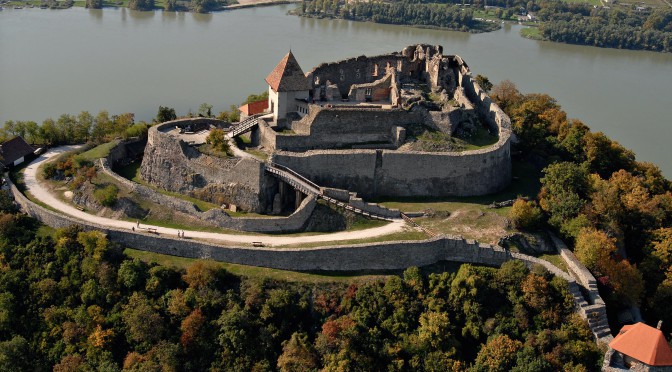Conceptual art in Bratislava in the 1960s-1980s
Research Area 1: Displacements, Dépaysements and Discrepancies.
Research Area 2 : Norms & Transgressions.
Contact: perin-emel.yavuz@cefres.cz
 This project focuses on the avant-garde microcosm of Bratislava in the 1960s-1980s, which included artists such as Július Koller (1939-2007), Stano Filko (1937-2015), Miloš Laky (1948-1975 ), Peter Bartoš (1938), Alex Mlynárčik (1934), Jana Želibská (1941). Provocatively compared with the communist context that prevailed then, I designate these artists as entrepreneurs because they had to find their own ways to create and show their work, in a context where private galleries were rare and where State dominated the worlds of art. These artists should therefore invent experimental forms and exhibition solutions that were very similar to those of Western avant-garde at the same time. One can perceive in these inventions, outside this official circuits of recognition of art, a way to access a kind of freedom from not only material contingencies but political oppression.
This project focuses on the avant-garde microcosm of Bratislava in the 1960s-1980s, which included artists such as Július Koller (1939-2007), Stano Filko (1937-2015), Miloš Laky (1948-1975 ), Peter Bartoš (1938), Alex Mlynárčik (1934), Jana Želibská (1941). Provocatively compared with the communist context that prevailed then, I designate these artists as entrepreneurs because they had to find their own ways to create and show their work, in a context where private galleries were rare and where State dominated the worlds of art. These artists should therefore invent experimental forms and exhibition solutions that were very similar to those of Western avant-garde at the same time. One can perceive in these inventions, outside this official circuits of recognition of art, a way to access a kind of freedom from not only material contingencies but political oppression.
Through historical research on this avant-garde microcosm and its local context, I want to investigate the origins and deep motivations of these artists’ “disguised” solutions to create and show their work. Starting from the assumption that art and politics are part of a relationship of interdependence, my goal is, first, to observe individual paths in relation to local art history, and secondly, to study their relationship with the coercive framework imposed by the State. In this way, the challenge is to determine the genesis of artistic innovation. In terms of reception, I also will question how the actions of these artists, these transgressive ways of making art, were perceived by connoisseurs and authorities. Including the use of institutional approaches and functional George Dickie Nelson Goodman from analytic aesthetics, this project thus commits an aesthetic thought on the status of an artistic production once it is not recognized by official channels. By using analytical aesthetics methods (including George Dickie’s institutional approach[1] and Nelson Goodman’s functional approach[2]), this project thus commits an aesthetic thought on the status of an artistic production when it is not recognized by official channels.
Beyond the local context, sources of these transgressive forms and practices will also be to find, according to the theory of cultural transfers, in exchanges with the Western world and the artists of the former Eastern bloc networks. This will enable to lay the groundwork for a histoire croisée of the turn of art in the 1960s-1980s and to review the chronologies of this artistic phenomenon which is still dominated by Western avant-garde.
[1] Dickie George, 1964, « The myth of the aesthetic attitude », American Philosophical Quarterly, vol. 1, no 1, p. 54-64 ; 1969, « Defining art », American Philosophical Quarterly, vol. 6, no 3, p. 253-256 ; 1974, Art and the Aesthetic. An Institutional Analysis, Ithaca, Cornell University Press.
[2] Goodman, Nelson, 1992 [1977], « Quand y a-t-il art ? », transl. by Daniel Lories, in Genette, Gérard, Esthétique et poétique, Paris, Seuil, p. 89-90.
CV
Current situation
- Associated to Centre for the Study of Arts and Language (CRAL UMR 8566) at the École des hautes études en sciences sociales (EHESS) in Paris.
- Co-founder of the research group ARVIMM, which is engaged in the study of contemporary visual arts in Maghreb and Middle East.
- Member of the editorial board of the French online review on art theory Proteus.
- Member of the scientific board of the French and German online review Trajectoires. Travaux des jeunes chercheurs du CIERA.
Personal web page
Education
7 Jan. 2015 : Audition for the residency competition within the program “Approches et théories de l’art mondialisé et du post-colonialisme”, National Institute for Art History (INHA), Paris, ranked second for one position.
23 Oct. 2014: Audition for the post-doc competition of the research programm “Labex Creation, Art and Heritage” (CAP), Paris.
27 June 2014: Audition for the post-doc competition Fernand Braudel IFER outgoing, Fondation Maison des sciences de l’homme (FMSH), Paris, ranked fourth for three positions.
2014: Qualification to become a university assistant professor in sections 18 (Aesthetics) and 22 (Art History).
2013 : PhD in Arts : History and Theory, EHESS, under the supervision of Jean-Marie Schaeffer, CRAL. Jury: Jacques Morizot, Jan Baetens, André Gunthert, Michel Gauthier. Mention très honorable. Dissertation title: Narrative art : de l’expérience du monde quotidien au monde de l’œuvre. Herméneutique de l’événement esthétique [Narrative Art: from the Everyday Life Experience to the Artwork. Hermeneutic of the Aesthetic Event].
9 June 2011 : Interview to “concours externe de professeur des écoles nationales supérieures d’art”, École nationale supérieure d’art of Dijon, ranked 3rd.
2002 : 2nd year of MA in Contemporary Art History, Université Panthéon-Sorbonne – Paris I. Mention bien.
2000 : 1rst year of MA in Contemporary Art History, Université Louis Lumière – Lyon II – Ruprecht Karls Universität, Heidelberg, Allemagne (Erasmus program). Mention bien.
Professional Experience
Research Experience
2008-2009 : Fellow, “History of Art and Aesthetic” Programm, Deutsches Forum für Kunstgeschichte (Paris)
2006 : Fellow, Graduiertenkolleg “Körper-Inszenierungen”, Department of Theater Studies, Freie Universität (Berlin, Germany)
2006 : Fellowship from the Centre Interdisciplinaire d’Études et de Recherches sur l’Allemagne (Paris) for a field trip in Germany (Berlin, Munich, Germany)
2004 : Fellow at the École Française de Rome, Villa Medici (Italy).
Teaching Experience
2014-2016 : In charge (with Annabelle Boissier, Fanny Gillet, Alain Messaoudi and Silvia Naef) of ARVIMM’s seminar, EHESS, Paris
2012-2013 : Tutor, Master Trans — Mediation Teaching, Haute école des arts et de design, Geneva (Swiss)
2008-2011 : Professor of History of Art at ESAL-Art School, Metz-Epinal (France)
2010-2011 : Part-time Lecturer of Contemporary Art History at University of Marne-la-Vallée (France)
2007-2008 : In charge (with Jean-François Guennoc) of the seminar Interart — Penser l’interdisciplinarité et les formes artistiques, EHESS, Paris
2005-2007 : Part-time Lecturer of Comparative Literature at University of Versailles-Saint-Quentin (France).
Curating Experience
Sept. 2014-Aug. 2015 : (with Alain Messaoudi & Fanny Gillet) TYPOGRAPHIAe ARABICAe, Bibliothèque Universitaire des Langues et Civilisations (BULAC), 15 June-8 August 2015.
Communication and Edition Experience
June 2013-Dec. 2015 : Scientific Communication Manager, Institute for Advanced Studies in Islam and Islamic Societies (IISMM), EHESS, Paris.
Dec. 2007-Oct. 2010 : Managing Editor, Trivium, French-German online journal for Human and Social Sciences, Paris — http://trivium.revues.org/
Conferences and Workshops
9 July 2015 : Panel Images, narrativités, identités. Ce que nous disent les arts plastiques des sociétés du Maghreb et du Moyen Orient (XIXe-XXIe siècle) [Images, Narrativities, Identities. What do tell Visual Arts about Maghreb and Middle East (XIXth-XXIrst Century)] — Congress of the Groupement d’intérêt scientifique “Moyen-Orient et mondes musulmans” (CNRS), INALCO, Paris. Co-organized with Annabelle Boissier, Fanny Gillet and Alain Messaoudi.
15 June 2015 : Workshop Typographie et graphisme de la lettre arabe : enjeux et perspectives [Arabic Typography and Graphic Design: Issues and Perspectives], Pôle des langues et civilisations, Paris. Co-organized with Fanny Gillet and Alain Messaoudi.
2014-2015 : Lecture series Conversation du spectateur, Théâtre de la Cité internationale, Paris. Co-organized with Edith Magnan and Bruno Trentini.
8 Nov. 2010 : Conference Sur les routes. La marche et les pratiques artistiques [On the Road. Walking and Artistic Practices], ESAL-Art School, Metz-Epinal, Musée de l’image, Epinal (France).
6-7 May 2010 : Conference Avant-gardes politiques / Avant-gardes artistiques dans les années 60-70. Un parallèle en question [Political Avant-gardes/Aesthetical Avant-gardes in the 60s-70s: from Parallel Towards Interaction], CRAL-EHESS/INHA, Paris. Co-organized with Malika Combes and Igor Zubillaga Contreras.
13-14 March 2009 : Conference Agencements – arrangements – a-genre-ments? Narrations en tous genres (France-Allemagne) [Gender-Collage? Gender-Muster? Gender-Er-zählung? Geschlecht(er) und Narration(en)], CIERA-EHESS-University of Sorbonne Nouvelle, Paris. (Co-organized with Patrick Farges and Cécile Chamayou-Kuhn).
Publications
Books and Special issues
- (ed. with Annabelle Boissier, Fanny Gillet & Alain Messaoudi), “The Visual Arts in Islamic Lands: New Approaches, New Challenges”, special issue, Revue des mondes musulmans et de la Méditerranée, 2017. (Project accepted)
- (ed. with Bruno Trentini), “Que fait la mondialisation à l’esthétique?” [What Does Globalization Make to Aesthetic?], special issue, Proteus, 2015: 8.
- (ed. with Malika Combes & Igor Contreras), A l’avant-garde ! Art et politique dans les années 60-70 [In the Vanguard ! Art and Politics During the 60s and 70s], Peter Lang, March 2013.
- (ed. with Patrick Farges & Cécile Chamayou-Kuhn), Le Lieu du genre. La narration, un espace de performation du genre [Narrative, a Space where Gender Performs], Presses de la Sorbonne-Nouvelle, 2011.
Articles in peer-reviewed journals
- “La traversée du Delaware, l’aventure esthétique de Bill Beckley” [The Delaware Crossing, the Aesthetical Adventure of Bill Beckley], in: Danièle Méaux (ed.), “Espaces phototextuels” [Phototextuals Spaces] (special issue) Revue des sciences humaines, 319, 2015: 3, p. 155-166.
- “Narative Art. Da autoridade do referente a uma possível ficcionalidade da fotografia”, in : Ana Maria Pacheco Carneiro, Beatriz Rauscher & Daniel Luís Barreiro (eds.), “Interdito: fotografia e fabulação” (special issue), ouvirOUver (Brazil), [online journal], vol. 11, no. 2, 2015. See online.
- “La mythologie individuelle, une fabrique du monde” [Individual Mythology, a Factory of World], in: Florence Baillet & Arnaud Regnauld (eds.), “L’Intime et le Politique dans la littérature et les arts contemporains” (special issue), Poétique de l’étranger (Paris), [online journal], no. 8, 2011. See online.
- “Photographie, séquence et texte. Le Narrative art aux confins d’une temporalité féconde” [Photography, Sequence and Text. Narrative art within a Fecund Temporality], in : Jan Baetens, Alexander Streitberger & Hilde Van Gelder (eds.), “Time and Photography” (special issue) Image&Narrative (Louvain), [online journal], no. 23, 2008. See online.
Chapters in Collective Works
- “Le Narrative art. De l’autorité du référent vers un possible fictionnel de la photographie” [Narrative Art. From Referential Authority to Fiction in Photography], in: Bernard Guelton (ed.), Fiction et Intermédialité, Paris, L’Harmattan, 2013, p. 31-36.
- “La politique de l’image aux confins d’une avant-garde qui ne dit pas son nom” [Picture Politics within an Avant-garde without Name], in: Malika Combes, Igor Contreras & Perin Emel Yavuz, A l’avant-garde ! Art et politique dans les années 60-70, Peter Lang, 2013, p. 157-168.
- (With Patrick Farges & Anne-Isabelle François) “Les Gender Studies entre transfert et institutionnalisation: une circulation des modèles et des pouvoirs” [Gender Studies between Tranfers and Institutionalization: a Circulation of Models and Powers], in: Aline Le Berre, Angelika Schober & Florent Gabaude (eds.), Le Pouvoir au féminin – Spielräume weiblicher Macht. Identités, représentations et stéréotypes dans l’espace germanique, Limoges, PULIM, 2013, p. 27-42.
- “La lecture comme paradigme esthétique. De l’extase moderniste au plaisir du texte” [Reading as Aesthetic Paradigma. From Modernist Excatsy to Pleasure of the Text], in: Andreas Beyer & Danièle Cohn (eds), Die Kunst denken. Zu Ästhetik und Kunstgeschichte, Berlin et Munich, Deutscher Kunstverlag, 2012, p. 199-213.
Communications
- (with Annabelle Boissier) “Temporalités en histoire de l’art. Valeurs et usages de la notion de retard” [Temporalities in Art History. Values and Uses of the Notion of Delay], ARVIMM’s seminar, EHESS, Paris, 2016-2-17.
- “Le tournant de l’art en Turquie, importation ou appropriation du modèle européo-américain? Lecture des écrits du STT” [Turn of Art in Turkey, Importation or Appropriation of the European and American Model? Reading the STT’s Writings], Conference Écrits et paroles d’artistes d’Afrique du Nord, du Moyen-Orient et de l’Europe de l’Est dans la guerre froide (1947-1989), IISMM-EHESS, 2015-11-4/5.
- “Sanat Tanımı Topluluğu (The Art Definition Group), passeur de l’Art conceptuel en Turquie” [Sanat Tanımı Topluluğu (The Art Definition Group), a Purveyor of Conceptual Art in Turkey], Conference Arts visuels et islams. Inventions, constructions, prescriptions (XIXe-XXIe siècle), Maison méditerranéenne des sciences de l’homme d’Aix-en-Provence, 2014-10-2/3.
- “Le tournant de l’art des années 1970-1980 en Turquie: formes et enjeux” [The Turn of Art during the 70s-80s in Turkey: Forms and Issues], ARVIMM’s seminar, EHESS, 2014-12-19.
- “L’introduction de l’art conceptuel en Turquie : le Sanat Tanımı Topluluğu (1978-1981)” [The Introduction of Conceptual Art in Turkey: the Sanat Tanımı Topluluğu (1978-1981)], Frédéric Hitzel & Timur Muhidine’s seminar, “Art, patrimoine et cultures dans le monde turc et ottoman”, IISMM-EHESS, 2014-11-19.
- “L’achèvement de l’œuvre. Implications esthétiques de la narrativité dans la réception” [The Achievement of the Artwork. Aesthetical Rule of Narrativity in Reception], Bernard Guelton’s seminar “Le spectateur face à l’œuvre interactive”, Research Project “Fiction et interactions”, Institut ACTE, Université Panthéon-Sorbonne-Paris-1, Paris, 2013-12-13.
- “Le Narrative art: de la destitution du modèle romanesque du récit à la narrativité” [Narrative Art: from Destitution of Novel’s Narrative Model to Narrativity], Anne-Isabelle François’ seminar, “Récit et sens de l’intrigue”, Master de recherche de littérature générale et comparée, Université Sorbonne Nouvelle-Paris 3, Paris, 2013-12-12.
 Since 2009, the head of Fondation Maison des sciences de l’homme, Michel Wieviorka was the chairman of the International Association of Sociologie AIS/ISA from 2006 to 2010 and led between 2003 and 2009 the Centre of sociological analysis and intervention (CADIS) at EHESS. With Georges Balandier, he co-directed the periodical Cahiers Internationaux de Sociologie from 1991 to 2011. He is today in charge of the editorial collection “Le monde comme il va” (The World as It Goes) within Robert Laffont publishing house.
Since 2009, the head of Fondation Maison des sciences de l’homme, Michel Wieviorka was the chairman of the International Association of Sociologie AIS/ISA from 2006 to 2010 and led between 2003 and 2009 the Centre of sociological analysis and intervention (CADIS) at EHESS. With Georges Balandier, he co-directed the periodical Cahiers Internationaux de Sociologie from 1991 to 2011. He is today in charge of the editorial collection “Le monde comme il va” (The World as It Goes) within Robert Laffont publishing house.




